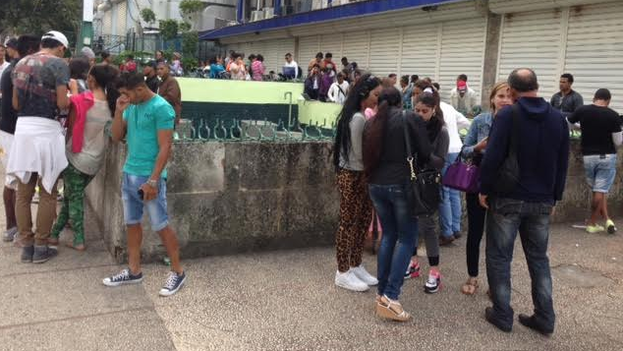
EFE (14ymedio), Havana, 31 January 2016 – A pilot project will test internet service in private homes in Havana, where 30 new public wifi zones will be established, as part of the 2016 projects announced by the State-owned Telecommunications Company of Cuba (ETECSA).
The director of the company, Odalys Rodriguez del Toro, said that test would be carried out in two of the People’s Council areas in the Old Havana district, the oldest part of Havana, “in hopes that in the future we can start bringing Internet to homes,” according to a Cuban News Agency (ACN) report.
These connections, a new service, will be through fiber optics, under an agreement with the Chinese company Huawei, with rates for the service to be announced later, according to the director.
Rodriguez del Toro also there will be an expansion of 30 new wifi areas in Havana, two for each of its 15 municipalities, to provide access to this service which is already available in 17 public spaces in the city; there is currently no service in the Cerro and Cotorro districts but they will get it in the coming days.
“The goal for this year is to have three city parks with wifi in each district and to reach other areas with large crowds such as El Castillito, the Cuba Pavilion, the Plaza of the Revolution, Balneario University in the Playa district, and in the future, cafes, bars and restaurants that request it,” the official added.
At the close of 2015, more than 150,000 Cubans on average accessed the internet every day, after the opening of 58 public wifi access points across the island, according to data from ETECSA.
The creation of the popular wifi areas was one of the alternatives implemented since July of last year by Cuba’s state telecommunications monopoly in order to expand internet connections, which continue to be unavailable in private homes.
The island is currently one of the countries with the lowest rates of connectivity in the world, with only 5 percent of the population having internet access, a percentage that drops to 1 percent in the case of broadband.
Internet access from private homes is not allowed except for Cubans in some professions as medical professionals, journalists, academics and intellectuals, who require special government permission to have connections.
